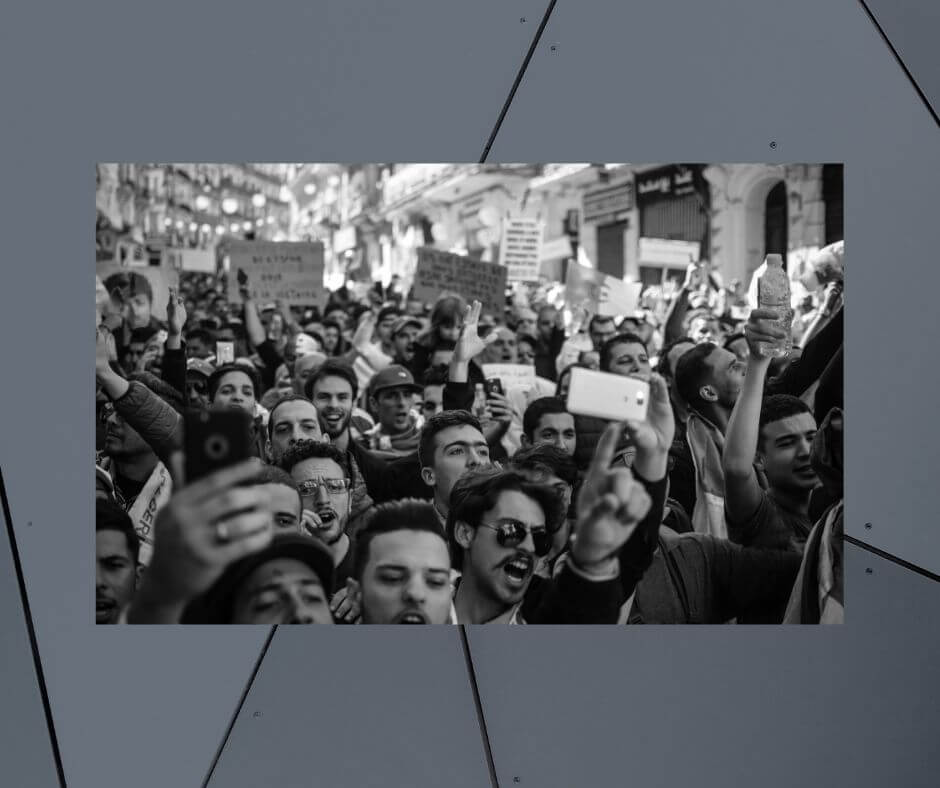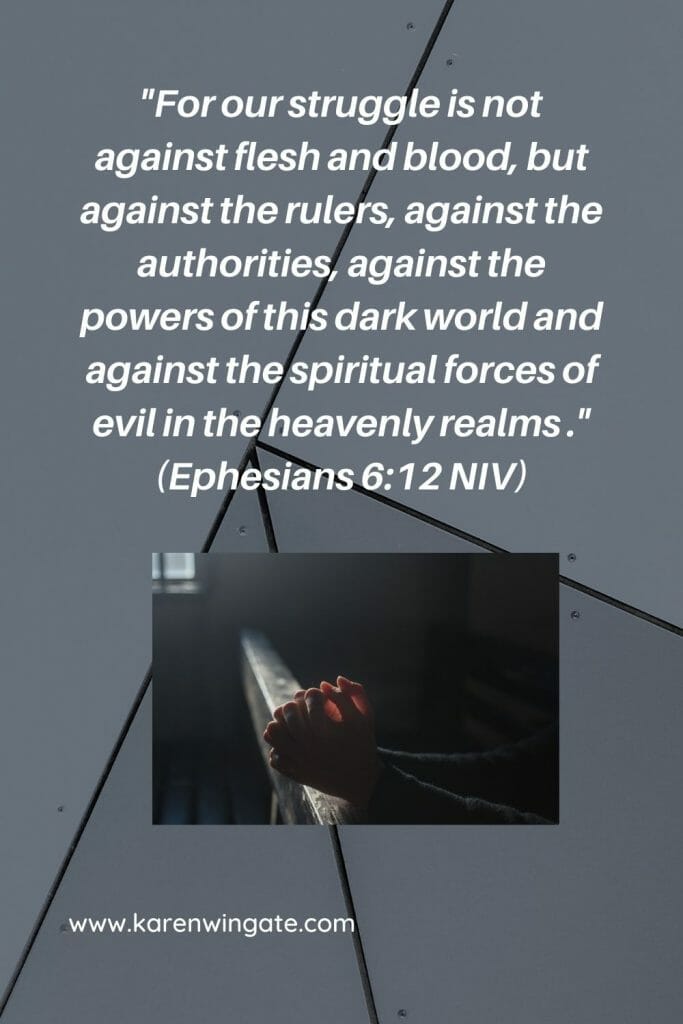
I have a simple solution to our country’s civil unrest.
The United States Presidential debate of September 29, 2020 will go down in history as a mess. The traditional question most people ask after a debate is, “Who won?” In this case, we more often heard, “Who lost?” Trump, Biden, the moderator, Chris Wallace? Or the American people? I heard it all.
As sorry as an affair as that debate was, it so typified the overall rancor and unrest that’s happening in our country and throughout the world. The culture war has moved from polite society’s difference of opinion to twisted accusations, intimidation, and threats of violence if you don’t agree with my view. Political parties, races, and even churches draw lines of contention rather than erasing them.
We may reluctantly agree on the big stuff but quibble on how to accomplish the greater goal. Tempers can flare over the smallest of issues: Did Trump talk to the media when he walked from the White House to the helicopter that would take him to Walter Reed Medical Center? How many clerks in Dollar General were wearing masks today? If church leadership doesn’t respond to COVID guidelines the way I think they ought to, I’m just not coming to church. Facts dissolve into accusations and questions of character with the review of a few past sins and bad choices thrown in for good measure.
I’m so tired of it, aren’t you? And it doesn’t need to be this way.
The truth is, infighting is nothing new. History is splattered with the blood, sweat, and tears of family feuds, tribal warfare, civil unrest, and outright war with the big boomers and AK-47’s.
The larger truth is this:
When we fight with each other, we weaken ourselves enough to make it easier for the real enemy to move in and claim victory.
Civil Unrest destroyed the Jewish nation in A.D. 66-70.
The Jewish revolt of A.D. 66-70 is a poignant example of how infighting can lead to the ruin of a civilization. Most Christians know that the Roman General Titus destroyed Jerusalem in A.D. 70. I remember reading an abridged account written by the Jewish historian, Josephus, when I was a teenager. It was horrifying. A blood bath doesn’t begin to describe the carnage.
I didn’t know until recently that the Jewish people made it easy for the Romans to swoop in and wipe them out. In the years leading up to A.D. 70, the Jews fought against themselves. No wonder Jesus showed such distress over his prediction of the destruction of Jerusalem (Matt. 23:37-24:2).
The Romans started their onslaught in Galilee, but Jewish leadership in Jerusalem did nothing to help their fellow Jews. Resentful refugees straggled into Jerusalem and Zealots challenged the reigning leadership with, “Why didn’t you do more?”
One source said that all the Jewish leadership in power in A.D. 66 was dead by A.D. 68. Not one died at the hands of a Roman; all of them were killed by their Jewish brothers. The Jews had food stockpiled that could have lasted them many years. In a desperate measure to motivate the people to fight, the Zealots destroyed all the food supply, thus causing massive starvation.
Here are two sources that can tell you more about the Jewish War of A.D. 66-70
Siege of Jerusalem (Wikipedia)
The Great Revolt (Jewish Virtual Library)
These sources tells us that the Romans would have conquered the Jews eventually but Roman victory came quicker and easier with a lot more loss of Jewish life because they had spent so much time destroying each other before the Romans arrived.
And that’s where we are headed if we aren’t careful.
When we argue with each other, we weaken ourselves. When we become weak, then the enemy can move in and destroy us all. Oh friends, let’s stand together, find common ground, and discover what we can agree on. Then we will be better equipped to fight the greater evil within our land.
Who is our enemy?
As we face off those who think differently than we do, whether in person or on social media, we have to ask ourselves: Is this person my enemy?
- A neighbor.
- The person in the coffee shop.
- The local liberal or county conservative.
- The politicians, the school board, or the local health department.
- The person of color or lack of color.
No. No, they’re not. These people are not your enemy.
They are people just like you.
Let’s stop destroying each other. Let’s let go of petty offenses, even the not so petty offenses. If we as a culture or even the church within the culture are going to survive, we need to stand together against the real enemy. We will not survive if we don’t.
So, if the person who disagrees with me is not my enemy, who is? In one word, evil.Anything that stands against God and His prescribed ways is the enemy. Not people, not even philosophies or differences of opinion. The one who wants to stir up trouble, hate, and violence, the one who is spearheading the animosity – that is the enemy. In Christian circles, we call him Satan or the devil. That’s the enemy.

Instead of fighting against each other, let’s stand arm in arm and fight our real enemy. It starts with learning to stand strong with each other.
How? Here’s some ideas:
- Choose your battles. Let the small stuff go.
- Base your reactions on fact, not emotion or hearsay
- Fill your mind with complete truth (Phil 4:8).
- Set your mind on eternal values, not earthly issues (Colossians 3:1).
- Remember who you serve. If you claim to be a Christian, you serve Jesus, not yourself, a political party, or family loyalty. Jesus.
- Find ways to strengthen your connections with those around you. Find ways to care for each other so when you do have to fight evil, you are battle ready.
- Avoid revenge. Forgive quickly.
- Find ways to bless your enemies.
- Actively, intentionally, pursue what is good and peaceful. Other people are watching. Show them that good is happening in the world.
Tolerance vs. grace
The culture war wants us to embrace tolerance which means they want us to agree with them and join them in their pursuit of civil unrest. God has a better idea. He wants us to offer grace. Grace allows the other person to have a different idea, even if it is wrong, and love them with the love of Christ in order to win them to, not my side, but God’s side.
- So, if it makes it easier and more comfortable for someone with a compromised immune system to come to church, I’ll wear a mask whether I think it does any good or not. Because we are strong when we are together.
- I’ll speak kindly to my local liberal in the coffee shop and ask how his sick mother is doing. Because we are stronger when we find common ground.
- I’ll listen to the accounts of pain from my neighbor of a different heritage. Because, while the reason for her pain may be different than mine, we still share the common human condition of broken hearts and shattered dreams. And in the listening, we build bridges rather than burning them.
How have you unwittingly added to the upheaval of civil unrest? What actions can you take this week to reach across the lines and bring healing to our nation? How can you stand strong with those around you this week?
Do you have other ideas on how we can find common ground with those with whom we disagree? Share your ideas in the comment section below.

Well said author! Each of us should pause, re-read Ephesians, and realize who the real enemy is. God’s book of Genesis tells us plainly who the enemy is; that serpent of old. Let us endeavor to leave our differences out of every moment of our lives and focus on being the people God wants to help us become.
Amen, amen! You said it so well. Thanks so much for commenting.